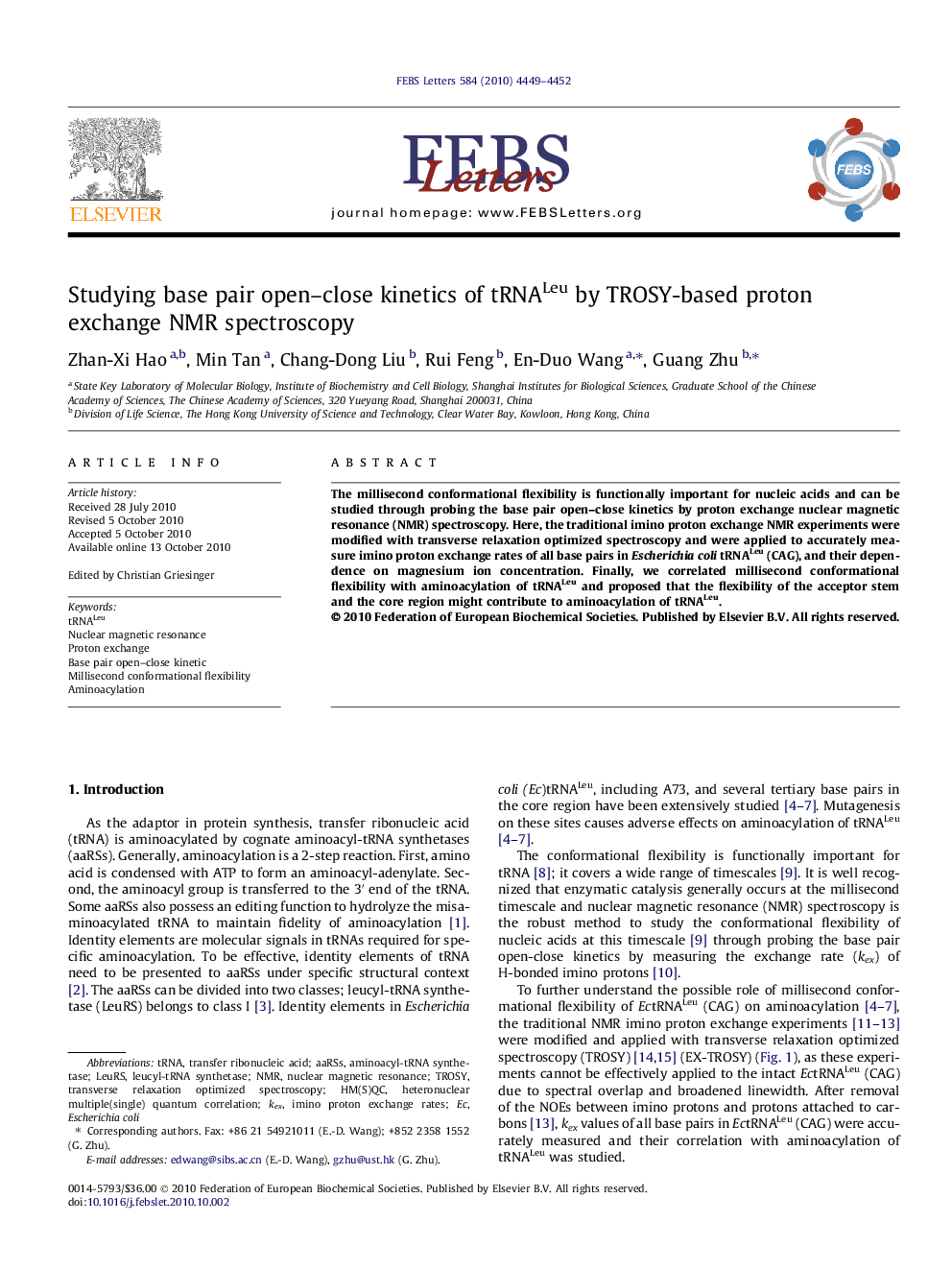| Article ID | Journal | Published Year | Pages | File Type |
|---|---|---|---|---|
| 2048809 | FEBS Letters | 2010 | 4 Pages |
Abstract
The millisecond conformational flexibility is functionally important for nucleic acids and can be studied through probing the base pair open–close kinetics by proton exchange nuclear magnetic resonance (NMR) spectroscopy. Here, the traditional imino proton exchange NMR experiments were modified with transverse relaxation optimized spectroscopy and were applied to accurately measure imino proton exchange rates of all base pairs in Escherichia coli tRNALeu (CAG), and their dependence on magnesium ion concentration. Finally, we correlated millisecond conformational flexibility with aminoacylation of tRNALeu and proposed that the flexibility of the acceptor stem and the core region might contribute to aminoacylation of tRNALeu.
Keywords
Related Topics
Life Sciences
Agricultural and Biological Sciences
Plant Science
Authors
Zhan-Xi Hao, Min Tan, Chang-Dong Liu, Rui Feng, En-Duo Wang, Guang Zhu,
